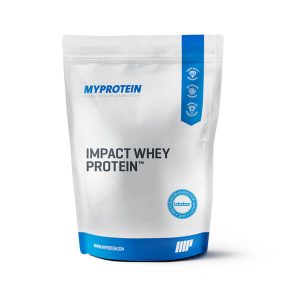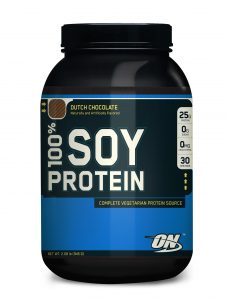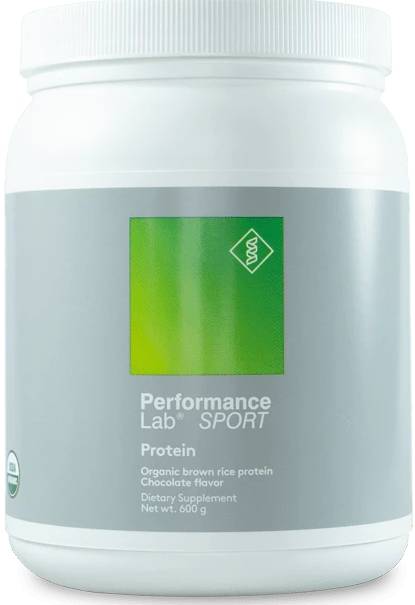If you’re a runner, you may think protein isn’t necessary. However, you may be surprised the best protein supplements for runners can go a long way.
In fact, contemporary studies suggest protein supplements have many benefits for aerobic activity. The Old School Way of thinking associated protein with lifting weights and anaerobic exercise.
Well, times have changed. We are learning that endurance athletes can also gain significant performance benefits from smart protein supplementation. This article covers the best protein powder for runners, specifically.
Table of Contents
Runners’ Protein Needs

The best protein powder for runners meets endurance athletes’ unique needs without creating bulky muscles that may limit their running performance.
Since many people associate protein with muscle, they think runners don’t need as much protein as bodybuilders.
The truth is, runners need protein to remain competitive. They don’t need a ton of it to excel. When they stick to the ideal amount, they will see a difference.
Bodybuilders Need More Protein Than Runners
Lifters, bodybuilders and fitness enthusiasts who focus more on anaerobic (strength training) exercise place a high premium on protein. This macronutrient helps in the following regards:
- Increases muscle growth
- Repairs muscle tissue
- Preserves lean muscle mass
- Regulates immune system function
So, if an individual wants to grow more muscle mass, he consumes a high-protein diet to help achieve this goal. According to Columbia University’s official website, a bodybuilder must estimate how many calories he needs daily.
For instance, a 180-lb. bodybuilder needs around 3,700 calories per day. A less active individual who weighs the same could get by with just 2,700 calories – a difference of 1,000 calories.
However, the former needs around “500 extra calories per day plus about 500 more to make up for the energy deficit from intense weightlifting,” per Columbia University’s official website.
The current recommended dietary allowance (RDA) for protein is 0.8 grams per kilogram of body weight. Unfortunately, this isn’t enough for bodybuilders to put on serious muscle mass. According to the experts from Columbia University, the ideal amount is 1.5-2.0 grams of protein per kilogram of body weight. This means a 180-lb. lifter should consume between 122 to 164 grams of protein daily.
Assuming a bodybuilder takes in 150 grams of protein and eats five times daily, that means he consumes an average of 30 grams of protein per meal.
Runners’ Unique Protein Requirements
Many people associate protein with muscle-building. While runners aren’t concerned about gaining muscle mass, getting in enough protein does wonders.
According to the September 2007 issue of the Journal of International Society of Sports Nutrition (ISSN), “Relative to endurance exercise, recommended protein intakes range from 1.0 g/kg to 1.6 g/kg per day depending on the intensity and duration of the endurance exercise, as well as the training status of the individual.”
In addition, long endurance events (such as marathons) burn higher amounts of branched-chain amino acids (BCAAs). This, in turn, creates higher demands for protein for the runner, per the same source.
Based on the ISSN’s recommended protein intake, a 165-lb. runner would need 75 to 120 grams of protein daily. If the same individual eats five times daily (including mid-morning and mid-afternoon snacks), this translates to an estimated 15-24 grams of protein per meal. This is within the average serving size of a protein supplement, which is 20 to 25 grams per scoop.
Protein Timing For Runners

Runners can benefit from consuming protein powder shakes both before and after a run.
While it has not been proven, some bodybuilders believe a crucial half-hour, post-workout anabolic window exists. During that time frame, they must consume protein and other nutrients to kickstart the muscle-building and recovery process. Not only that, but some of them also insist on consuming supplemental protein before their workouts. This helps their muscles remain in an anabolic state.
Long story short, timing is everything for the bodybuilder. The same mindset applies to the runner.
Many runners consume protein first thing in the morning to help increase their energy levels and satiety. It also helps enhance their moods. More importantly, this helps fill the muscles with amino acids upon waking up. Runners, just like everyone else, come off an eight-hour (sometimes more) fasting period.
Is it good to drink protein shakes after running?
Some runners also take advantage of the previously-mentioned post-workout anabolic window. While their primary goal isn’t to build muscle, they need to shorten recovery time. Protein powder for runners helps meet that objective. On that note, some endurance athletes also consume a slow-absorbing kind of protein (preferably micellar casein) an hour or so before bedtime. Not only does this help speed up recovery, but it also helps feed the body during sleep.
As for the issue of consuming protein shakes before or after running, doing both has great benefits for runners.
- The reason: running breaks down muscle fibers. Chugging on a protein shake prior to a long run helps preserve muscle mass. Consuming one afterward helps shorten recovery time.
Many runners are afraid of consuming protein shakes because they’re afraid they might become bulky. They’re after a lean, muscular build without the added mass so they can perform well consistently.
Too much protein isn’t the culprit here. Muscle mass is the result of nutrition, supplementation, sleep, and strength training. When you don’t hit the weights, you don’t muscle up. It’s that simple.
For the runner, the key is to do endurance training, pay attention to your macros, and take in the right amount of protein (0.8 g of protein/kg of body weight on non-training days and 1.0 to 1.6 grams of protein/kg of body weight on training days).
The Runner’s World Training Guide for Runners draws up a sample nutrition plan for a long run:
| Suggested Foods | |
| Before | Low-fiber cereal with skim milk, pretzels, fig cookies, sports drinks, energy bars |
| During | Gels, Clif Bloks, Powerade, Accelerade, GU |
| After | Low-fat chocolate milk, ham sandwiches, fruit smoothies with added protein |
The same guide emphasizes a recovery drink with carbs and protein to replenish depleted glycogen stores and repair muscle tissue.
If you consume inadequate amounts of protein, you may compromise your recovery. What’s worse is you may have issues warding off fatigue in the long run.
Bottom line: if you stick to your target macros and supplement with protein regularly, you’ll improve your performance as a runner. You won’t bulk up, either.
Good Protein Sources For Runners
Consuming a protein supplement daily is a great way for runners to keep up with the rigors of their sport. There are different types of protein products on the market are up to the task.
Brown Rice Protein
Some fitness aficionados consider brown rice protein as the healthiest protein supplement. In fact, they say it has almost the same amino acid absorption rate as whey protein.
However, brown rice protein’s leucine absorption is faster than whey. Bear in mind leucine is the most anabolic amino acid – it helps kickstart the muscle protein synthesis process. Believe it or not, one 25-gram scoop of brown rice protein yields 20 grams of protein. It also supplies your body with 30 percent of the daily value for iron and a solid 70 percent of the daily value for vitamin C.
Brown rice protein has other important benefits:
- Boosts weight loss
- Reduces glycemic response
- Improves liver and heart health
- Keeps cholesterol levels in check
- Offers a gluten- and dairy-free alternative to consumers
If a runner has lactose issues, brown rice protein is a great alternative to whey. Furthermore, it’s far superior to soy protein – and in our honest opinion, even whey protein too.
Whey Protein for Runners

Far and away, this is the most popular protein supplement among fitness enthusiasts. Whey protein, which makes up 20 percent of cow’s milk, is the fastest-absorbing kind of protein. The body fully absorbs it within 40 minutes after consumption, making it an ideal protein before running.
Whey protein has several different kinds, all of which make a good protein powder for runners:
- Whey protein concentrate (WPC): this is made up of roughly 75 to 80 percent protein. As such, it has the highest amount of fats (lactose) and carbs than its other whey protein counterparts. However, experts believe it has better immune-boosting properties because of its higher immunoglobulin content. It’s also the most affordable kind of whey on the market.
- Whey protein isolate (WPI): this is made up of at least 90 percent protein. The extra filtration process lowers the extra fat and carb content. WPI is the purer form of whey than WPC. It is better-suited for those who are on a low-carb diet and are lactose intolerant. It’s also a great supplement for those who want lean muscle mass. WPI is more expensive than WPC.
- Whey protein hydrolysate: This is a concentrate or isolate where heat and enzymes break down the amino bonds for even faster absorption. The trade-offs: a somewhat bitter taste and expensive price tag.
Soy Protein Powder for Runners

This kind of protein is a by-product of soybeans, which are members of the pea family. It has several important benefits of the runner:
- Boasts of an impressive amino acid profile
- Helps increase muscle mass
- Provides fiber and isoflavones
- Contains many vitamins and minerals (B vitamins, vitamin E, phosphorus, potassium, zinc, iron, etc.)
- Wards off free radicals
- Acts as a great alternative for vegans and vegetarians
- May hold special benefits as a protein for women who are runners
Some experts say consuming soy protein may lower one’s testosterone levels. Maintaining optimum testosterone levels in the body contributes to overall muscle growth, strength, and fat loss.
Another disadvantage of many soy protein products is the manufacturing process – they are engineered genetically. These can result in gastric, thyroid, and mineral deficiency issues. Some health experts claim consuming fermented soy protein or organic soy protein is the answer.
Other Recovery Supplements For Runners
Protein isn’t just the ideal supplement for runners. An endurance athlete can resort to other products which help increase performance and shorten recovery time.
Creatine
Creatine supplements are not just meant for bodybuilders. Sure, it is known to increase muscle mass, but it also has tremendous benefits for runners.
For one, creatine helps keep inflammation and cellular damage at bay. These are two issues endurance athletes deal with on a regular basis. In addition, creatine also helps keep submaximal VO2 levels (the maximum rate of oxygen one consumes during exercise) in check. This results in more productive running sessions and workouts.
Runners also have to deal with hot outdoor weather. Creatine helps offset any issues by improving sweat and heart rate.
Caffeine
Caffeine is arguably the favorite stimulant of many athletes. Aside from increasing performance, it has several other vital benefits for runners:
- Helps enhance mental acuity
- Converts fat into energy
- Improves reaction time
- Boosts fat loss
- Helps replenish glycogen stores in tandem with carbs
- Wards off free radicals
- Helps regulate liver function and blood sugar levels
Many pre-workout supplements and energy boosters have caffeine. When runners consume caffeine in moderation, it helps them stay at the top of their game.
Caffeine is also a double-edged sword – it may cause spike-crash or jittery effects, sleeplessness, and palpitations in some individuals.
One way to neutralize the effect of caffeine is taking l-theanine, an amino acid found in green tea, industry-leading nootropic brain-booster formulas and many sleep supplements. In any case, consult your physician if you have any doubts about caffeine.
Calcium
This mineral is best known for its ability to strengthen bones – a must for any runner. If one’s bone health deteriorates, he or she may find it difficult to run effectively as he ages. Calcium also has other crucial health benefits:
- Improves cardiovascular function
- Promotes healthy blood pressure levels
- Keeps free radicals at bay
Many multivitamins have solid amounts of calcium. Some experts say calcium supplementation may result in cardiovascular issues in some individuals. If this concerns you, consult your physician before purchasing any calcium supplement.
Iron
Female runners need optimal iron levels more than their male counterparts. When they ovulate every month, they lose blood. This may compromise their iron levels, and, consequently, their endurance.
The reason: iron deficiency is linked to fatigue. Remember, iron helps produce hemoglobin, a protein molecule which transports oxygen from the lungs to the body’s tissues.
Not only that, but iron also helps improve muscle function. Iron helps supply oxygen to the muscles. When that happens, they contract efficiently.
Finally, iron also helps regulate body temperature and immune system function – two important benefits for runners.
Many multivitamins also have iron; the best multivitamin supplements for women will supply a little more. If you’re new to iron supplementation, talk to your doctor first – he or she can suggest the right amount suited to your running needs.
Running, Weight Loss and Protein Powder for Runners

Putting a major premium on carbs won’t cut it for runners. Smartly incorporating protein in a nutrition and supplementation regimen can produce great results.
Here’s the key: sticking to the prescribed amount of protein (0.8g/kg of body weight on non-training days and 1.0-1.6 g/of body weight on training days) will help satiate runners.
This helps him stick to the amount of calories his trainer or nutritionist recommends. When that happens, he will reach his ideal weight and even lose some of it.
In terms of protein supplementation, whey protein and brown rice protein are the best options. Both have qualities which will help endurance athletes lose weight.
Best Protein Powder For Runners – Reliable, High-Quality Brands
We at Best 5 Supplements have reviewed many top-notch protein supplements. We recommend the following protein brands for runners who want to get the best out of their training:

Leave a Reply